At bottom, we find a theological problem. The apes believe that God has created them to be the masters of the planet, setting them apart from the other creatures.
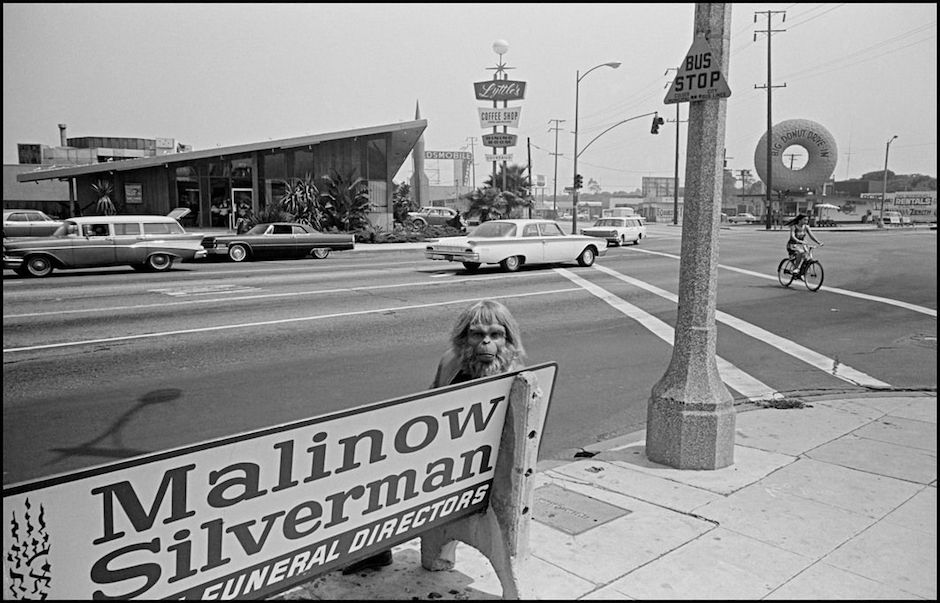 At bottom, we find a theological problem in The Planet of the Apes.
At bottom, we find a theological problem in The Planet of the Apes.
This year marks a century since the birth of Franklin J. Schaffner (1920–89), the son of evangelical missionaries who has gone down in the history of popular culture as the creator of the “Planet of the Apes” saga.
In fact, Schaffner based himself on a book by Pierre Boulle, a French writer who worked as a spy in South-East Asia during the Second World War. In the film, the astronaut played by Charlton Heston hopes that “somewhere in the universe” there is “something better than man”.
No one who has seen the film – even on a small black and white television in the 1970s – will forget its surprising ending. The book, published in 1963, is very different. The rights were bought by a small producer called Arthur Jacobs, who is considered to be the real brain behind the film.
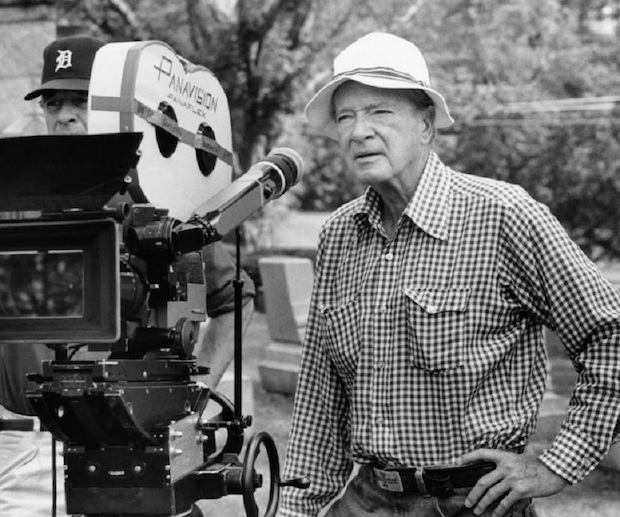
The script is written by the master of the golden age of television, Rod Serling. He is known for the series “The Twilight Zone”, in which he was assisted by one of the people on the anti-communist blacklist, Michael Wilson.
It was, however, the conservative Charlton Heston who proposed Franklin Schaffner for this production by Zanuck for Fox, after the project was rejected by various other studios.
The author of the original story was Pierre Boulle, an engineer born in Avignon in 1912 and who died in Paris in 1994. Interestingly, since it would appear to embody British military honour, he also wrote “The Bridge on the River Kway” (1954). He worked in Malaysia for a British rubber plantation in the 1930s, but when the Second World War broke out he entered the British secret service in Singapore.
After various missions to Burma and China, under the name of Rule, Boulle was sent off on a bamboo boat down the river to Hanoi, which was then controlled by Vichy.
Arrested by the French, he was given a life sentence to forced labour, but he managed to escape towards the end of the war. Like many other spies, he didn’t have one side, as his work clearly shows.
In Planet of the Apes (1963), a couple on honeymoon in space find a bottle containing a manuscript. It is written by a French reporter who tells of his adventures in a planet dominated by apes, who have enslaved humans.
The ending of the book isn’t the same as in the film. The reporter returns to Paris–Orly airport, where he discovers that the staff are all apes. We soon realize that the honeymooners are, in fact, chimpanzees… amazing!
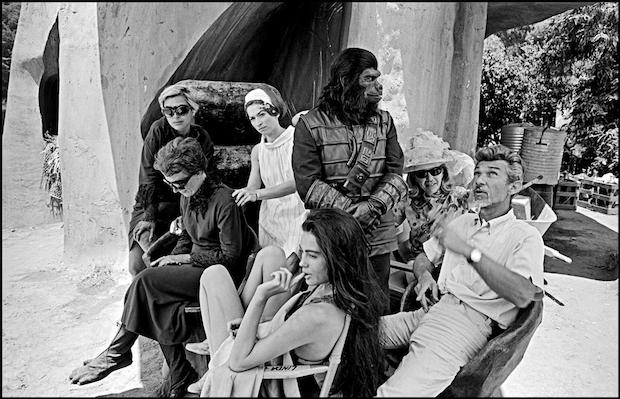
In the book, the journalist, Ulises Mérou, is accompanied by a physicist called Levain, a teacher called Antelle and a small chimpanzee. On the far-off and enigmatic planet Soror they find vehicles, skyscrapers and planes like the ones on Earth.
But the planet is in the orbit of the Betelgeuse star and is ruled over by apes, who have enslaved the humans.
At that time, Fox had a ranch in Malibu – now one of California’s natural parks. They didn’t build a large city there, but a small primitive village.
Although there is nothing left of the ranch now – like the one in Santa Susana, where they also filmed westerns and where Charles Manson formed his sect shortly after the filming of “Planet of the Apes” – all the film’s locations can be found online.
“The question is not so much where we are but when we are”, says the Afro-American astronaut who accompanies Heston’s character, Taylor. The spaceship leaves Earth in 1972, but when they crash into the planet, the clock shows the year 3978.
Even so, Taylor doesn’t give up hope of finding “something better than man”. What he finds, however, are apes who hunt him down like an animal.
For this reason, some have described the “Planet of the Apes” as a backward evolution, even though Darwinism never said that humans came from apes, rather claiming that apes and humans both came from ancient primates that no longer exist.
The apes’ intelligence, although they do not have the technology of the twentieth century, creates a resemblance to modern Western society, as they believe that no one else is gifted with the same intelligence. For some, this is proof of an animal rights morale, but this would be to over-simplify things.
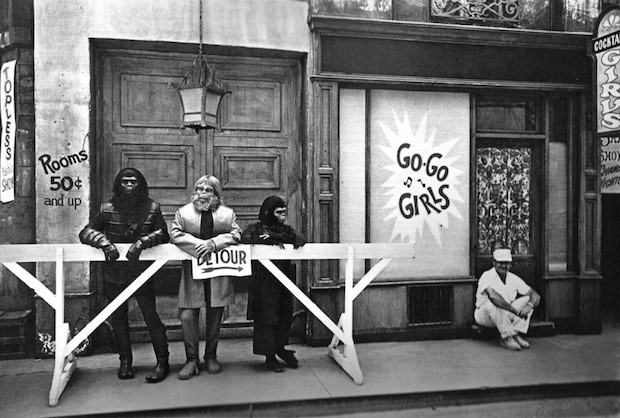
At bottom, we find a theological problem. The apes believe that God has created them to be the masters of the planet, setting them apart from the other creatures. Their belief is based on some sacred rolls written by a religious figure resembling Moses, known as The Legislator.
There even appears to be an evolution-like controversy since some scientists, including Cornelius, suspect there to be a secret “scientific heresy” which claims that the apes came from humans.
When the apes become aware of Taylor’s intelligence, he is taken before a court with Cornelius and Zira, presided over by the “Main Defender of the Faith”, an orangutan called Zaius.
At this point, one might be forgiven for thinking that “Planet of the Apes” (1968) is a back-to-front version of “Inherit the Wind” (1960), which narrates the trial of Scopes for teaching evolution in schools. However, this is not the case.
The religiosity of the characters is a lot more complex – Zaius conceals his deeper knowledge of humans and Cornelius follows clearly contradictory reasoning. The conclusion shows that this is not about demonstrating how bad religion and how good science is…
The first words uttered by Taylor give us the key to the story. He is looking “somewhere in the universe” for “something better than man”. If the society of the apes reflects the intellectual and spiritual problems of humans, it is not to make a comment about the state of our society but to address the hypothetical question of what would happen if the roles of humans and apes were reversed.
This is seen even in the generational change. Zira's young nephew, Lucius, complains that "you can't just trust the older generation".
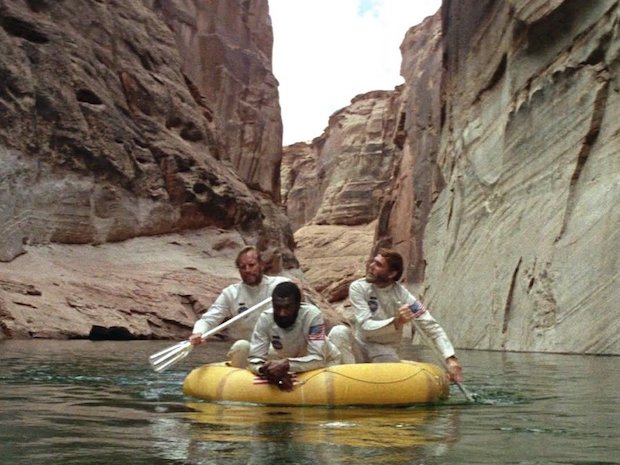
Is there anything in the universe better than man? The answer to this question, as in any work of art, is ironic and ambiguous. Culture is nothing more than a reflection of our questions.
The answers to the transcendental ones are not found in novels, songs or films. For that we need to go to the Book of Life, the Bible.
A good film makes you think. This story tells us that if the apes were in control everything would not be much better. But, in fact, it would be exactly the same.
Those who attribute an animal rights message to this story would do well to take note of Zaius’ final words to Taylor at the end of the film, when he starts off on a journey to discover the secret of the planet of the apes: “Don’t look for it, Taylor. You may not like what you find…”.
The evidently pessimistic message of this story highlights the fact that the solution to our problem does not lie in evolution, education, revolution or escapism. Humanity does not improve through competition, knowledge, experience or by fleeing reality.
What it needs is salvation. That is why this story is a better starting point to talk about our needs, than so-called “redemption stories”. What we find here is the problem, not the solution.
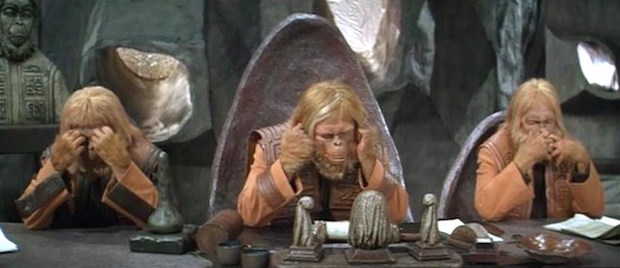
Only the Author of Life can resolve the problem of creation. By coming to this world he showed us something better than man. God not only made man good, but when he saw his creation, he observed that it was “very good” (Genesis 1:31).
It was man that ruined things (Genesis 3). That is why someone better than man, as we know him, had to come. That new man (Romans 5:12–21) brings life where there used to be death.
Through his death he conquered death, resurrecting to life and bringing hope of a new creation (Romans 8).
This world, whoever is in control, has no other solution than the salvation of God himself. His death and resurrection offer a great future for our planet Earth. This future does not lie in the hands of apes or in anyone other than He who, by participating in our humanity and by his death broke “the power of him who holds the power of death” (Hebrews 2:14).
It is He who will deliver us from destruction. We do not have to be weighed down by fear, but trust in a man who is better than us… He is our hope!

Las opiniones vertidas por nuestros colaboradores se realizan a nivel personal, pudiendo coincidir o no con la postura de la dirección de Protestante Digital.
Si quieres comentar o